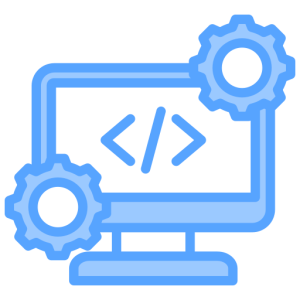
Level: Beginner to Intermediate
Prerequisites: Basic computer knowledge; prior exposure to logic or programming is helpful but not required
Software Required: Visual Studio Code / Eclipse / Java SE / Python / .NET (as per instructor choice)
Certification: Certificate of Completion from Thakral Global Learning + Preparation for Certiport IT Specialist: Software Development or equivalent Pearson Certification
📖 Course Overview:
This course is designed to provide learners with a strong foundation in software development principles, programming logic, and software engineering practices, preparing them for Certiport’s IT Specialist: Software Development certification. Through hands-on experience, students will learn how to design, code, test, and deploy software applications using modern tools and best practices. Ideal for aspiring developers, computer science students, and professionals looking to break into the tech industry.
✅ Learning Outcomes:
By the end of this course, participants will be able to:
- Understand core concepts of software development, programming, and object-oriented design
- Analyze problems and apply structured problem-solving techniques
- Write, debug, and test programs in at least one high-level language (e.g., Java or Python)
- Implement basic algorithms and data structures
- Apply software development life cycle (SDLC) phases
- Prepare for the IT Specialist: Software Development certification exam
🧩 Course Modules:
Module 1: Introduction to Software Development
- What is software development?
- Types of software: application, system, web, mobile
- Roles in a software team: developer, tester, analyst
- Overview of Certiport’s Software Development certification
- Setting up the development environment
Module 2: Programming Fundamentals
- Variables, data types, and operators
- Control structures: conditionals and loops
- Functions/methods and parameters
- Input/output operations
- Writing and executing basic programs
Module 3: Object-Oriented Programming (OOP)
- Classes and objects
- Encapsulation, inheritance, and polymorphism
- Constructors and destructors
- Static vs. instance members
- Creating small OOP-based projects
Module 4: Data Structures & Algorithms Basics
- Arrays, lists, and dictionaries/maps
- Stacks and queues (intro)
- Searching and sorting algorithms
- Time and space complexity basics
- Implementing algorithms in code
Module 5: Software Development Life Cycle (SDLC)
- Phases of SDLC: planning, analysis, design, implementation, testing, maintenance
- Waterfall vs. Agile methodologies
- Importance of documentation and user requirements
- Working with use cases and UML diagrams
Module 6: Error Handling, Testing & Debugging
- Common types of errors (syntax, runtime, logic)
- Debugging tools and breakpoints
- Writing test cases and performing unit testing
- Introduction to version control (Git basics)
Module 7: Certification Preparation & Practice
- Understanding Certiport exam domains and question types
- Practice multiple-choice and scenario-based questions
- Tips and strategies for the certification exam
- Mock test with feedback and score analysis
Module 8: Final Software Project
- Choose a real-world problem to solve
- Plan and design a software solution
- Implement using programming concepts learned
- Test and present your software
- Receive instructor feedback and project evaluation
📝 Assessment & Evaluation:
- Weekly coding tasks and quizzes
- Mid-course programming challenge
- Final project (evaluated)
- Certification mock test
- Instructor review and feedback sessions
💼 Career Pathways:
- Junior Software Developer
- Full-Stack Developer (Entry-Level)
- QA Tester / Automation Developer
- App Developer (Web or Mobile)
- IT Specialist (Development Track)
🌟 Why Choose This Course at Thakral Global Learning?
- Curriculum aligned with global certification standards
- Hands-on, project-based learning approach
- Expert instructors with real-world experience
- Access to code samples, labs, and mock tests
- Dual recognition: Course completion + Certification readiness

![]()

